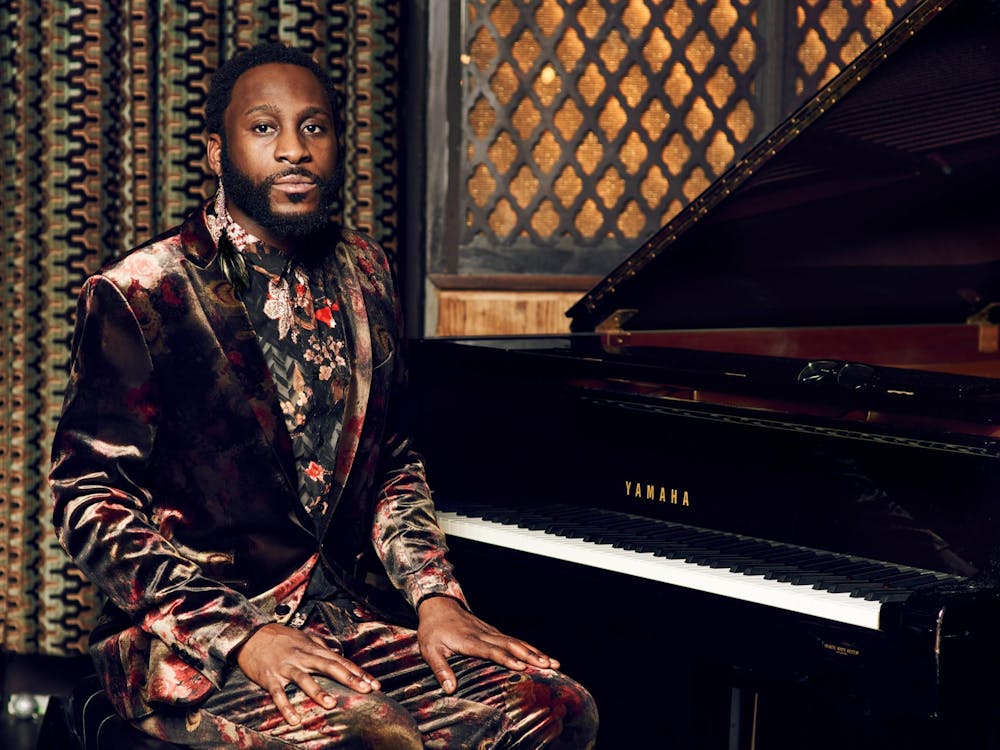Six months into the COVID-19 pandemic, virtual concerts have become almost as commonplace as the phrase “these unprecedented times,” but Duke Performances is still finding new ways to innovate.
Under the leadership of new director Bobby Asher, who officially began his tenure at the beginning of September, the organization transformed its planned lineup of live performances into a series of commissioned concert films. The initiative, titled “The Show Must Go Online!” kicked off Sept. 12 with the Attacca Quartet.
This season will include performances from jazz group Mwenso & the Shakes, piano duo Christine and Michelle Naughton, classical instrumentalists from the Chamber Music Society of Lincoln Center and the critically acclaimed Cuarteto Casals.
“One of the questions that people in artistic organizations ask as a test of relevance is ‘If your organization went away, who would miss it?’ I think what I’ve learned through this time … is that there are a lot of people who have been touched by Duke Performances and would really miss it,” Asher said. “I think our job going forward is to make it as relevant and connected as possible [and] to make it a vital part of life for as many people in the Durham area and on campus as we can.”
Over the summer, Duke Performances put on “Music in Your Gardens,” a series of eight free online concerts, in lieu of their typical “Music in the Gardens” summer series, which is held in the Duke Gardens. Once Duke Performances learned mid-summer that their fall season could not go on in-person, this endeavor was the organization’s first taste of what a virtual season could be.
According to Asher, artists in the series interacted in the live chat while the recording of their performance played.
“The chat became this really beautiful conversation between the artist and the audience while the performance was going on,” he said. “That’s a really fascinating thing that you don’t see in live performances.”
Having a few months of experience under their belts, the staff began to see the fall as an opportunity to push their boundaries, finding new ways of connection and even beginning to explore the genre of film as part of their artistic product.
“I think one thing you’re going to see with some of the performances that we’ve yet to announce is our artists evolving to make the videography part of what they’re doing artistically, instead of just a representation of what would’ve happened live,” Asher said. “We’re saying ‘Let’s make something new and different with the set of circumstances we’ve been given.’ I’m excited to see what they’re going to make that’s different [from] what we would’ve seen on stage or on canvas.”
Asher also anticipates the virtual setting will be a catalyst for innovation in the eventual comeback of live performances.
“What’s interesting about [a virtual season] is that you have more time to experience it. The films are premiering on Saturday evenings, but then they’re going to be available all of the next day,” Asher said. “You can have a drink or eat or talk about the performance while it’s going on in a way that isn’t part of our practice when we’re in person. I would invite people to sort of explore how they’re experiencing this work and to see if there are ways that they want the live experience to be different when we’re back.”
The remote format has necessitated more collaboration than normal, which is something that Asher hopes to maintain even after the pandemic is over. Each concert film in this fall series is made in cooperation with filmmakers and sound engineers in the artist’s area, and Duke Performances worked with the provost and the vice provost for the arts to make tickets free for all Duke students.
“I want Duke Performances to be the most partnership-based organization on our campus and in our community,” Asher said. “If anyone has an idea or a plan or a vision or anything that they want to do that they think could be connected to the arts in any way … we want people to reach out and we’ll find ways to connect the arts to whatever their idea or vision is.”
In his previous role as the director of programming for the Artist Partner Program at the University of Maryland’s Clarice Smith Performing Arts Center, Asher led the development of the NextNOW Fest, a student-run festival that “celebrates community and creativity.” At Duke, he hopes to see an increase in student involvement, both in Duke Performances and in Duke Arts at large, and “democratize” the process of curating the organization’s slate of performances.
For now, though, he hopes students — and the greater community — will engage with Duke Performances by attending “The Show Must Go Online” events and supporting artists in a time that has been challenging for so many.
“I’m excited about making sure that when people in the community buy a ticket, [they know] those tickets are supporting an industry that is going through a complete decimation right now. Buying that ticket and seeing that virtual performance is almost an act of survival for the industry,” Asher said. “I want the audience to feel that they’re getting something great, but also that they’re giving back. I want them to feel as great about that as they do about seeing the performance.”
Tickets for Duke Performances events can be purchased online at https://dukeperformances.duke.edu/
Get The Chronicle straight to your inbox
Sign up for our weekly newsletter. Cancel at any time.

